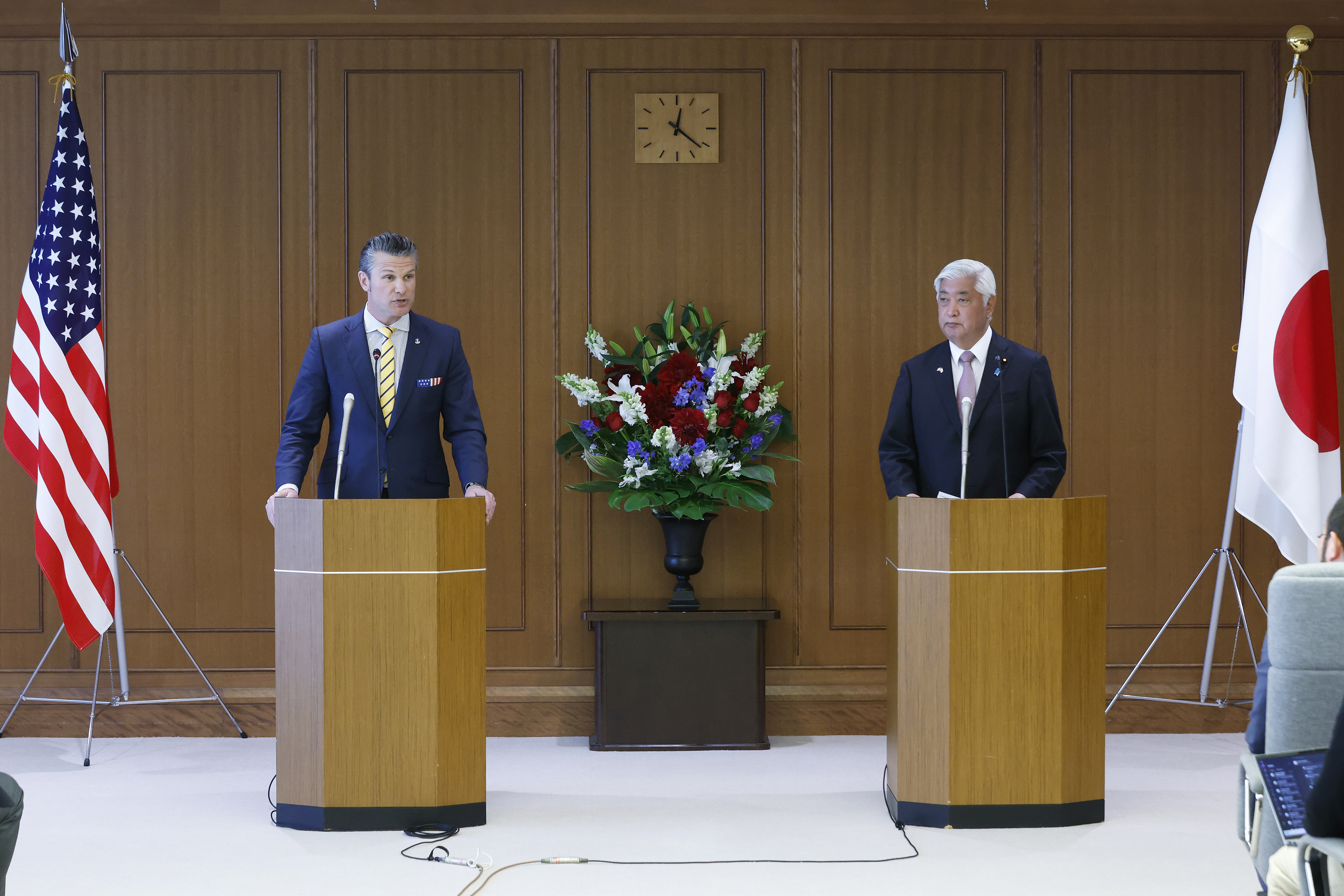China has sent its army, navy, air, and rocket forces to surround Taiwan for large-scale drills that Beijing says were aimed at practising for "precision strikes" and a blockade of the island, prompting Taiwan to dispatch aircraft, ships and deployed land-based missile systems in the area.
Tuesday's exercises were aimed at sending a "stern warning and forceful deterrence" to alleged separatists in Taiwan, Beijing said.
They involved "sea-air combat-readiness patrols, joint seizure of comprehensive superiority, assault on maritime and ground targets, and blockade on key areas and sea lanes", said Senior Colonel Shi Yi, spokesman of the Chinese military's Eastern Theater Command.
Beijing's armed forces "close in on Taiwan Island from multiple directions", he said.
The drills also involved training for "multi-directional precision strikes", the Eastern Theater Command said in a statement.
A video shared by the military on the X-like Weibo platform showed footage of weapons interspersed with animations of Sun Wukong, the legendary Monkey King from the classic Chinese novel "Journey to the West".
The video climaxes with Chinese forces appearing to use satellites to mark targets across Taiwan, before ending with a flurry of rocket explosions while multiple Monkey Kings attack a giant frog monster.
A graphic shared by the military depicted Taiwan’s top official Lai Ching-te as an insect being roasted over an open fire.
"(Taiwan) authorities' stubborn persistence with the Taiwan independence stance and their futile attempt to split the country from outside by seeking independence... is doomed to fail," foreign ministry spokesman Guo Jiakun said.
Taiwan said it dispatched its aircraft and ships, and deployed land-based missile systems, in response to the ongoing exercises and accused Beijing of being the world's "biggest troublemaker".
The drills come after US Defense Secretary Pete Hegseth said in Japan on Sunday that the United States would ensure "deterrence" across the Taiwan Strait, and called Beijing "aggressive".
Beijing has increased the deployment of fighter jets and naval vessels around Taiwan in recent years.
China deployed 21 warships around the island, including the Shandong aircraft carrier group, along with 71 aircraft and four coast guard vessels in the drills, Taiwan's defence ministry said. No live fire had been detected, it said.
It was the highest number of warships detected in a single day since May last year, when 27 navy vessels were reported, and the most aircraft since the 153 detected in October, according to an AFP tally of the ministry's figures.
Tensions across the Taiwan Strait have escalated since Taiwanese top official Lai took office in May 2024.
Lai has called China a "foreign hostile force" and proposed measures to combat growing Chinese "espionage and infiltration."

Pentagon chief visits Tokyo to reinforce the US-Japan alliance against China's aggressive actions in the Indo-Pacific.
Potential flashpoint
In Washington, President Donald Trump "is emphasising the importance of maintaining peace in the Taiwan Strait," White House Press Secretary Karoline Leavitt told a briefing.
She reiterated US "opposition to any unilateral attempts to change the status quo by force or coercion."
The European Union accused China of increasing cross-strait tensions by holding the military drills and called on all parties to "exercise restraint".
China has carried out multiple large-scale exercises around the island in recent years, often described as rehearsals for a blockade and seizure of the territory.
Analysts have speculated that China was more likely to attempt a blockade of Taiwan than launch an all-out invasion, which was riskier and would require a huge military deployment.
Taipei military expert Su Tzu-yun told the AFP news agency the drills appeared to be of similar size to the "Joint Sword" exercises in May and October.
Holding drills straight after Hegseth's visit to the Asia-Pacific region showed China was testing the Trump administration, said Lin Ying-yu of Tamkang University.
China opposes US support for the island. In 1979, Washington adopted a "One-China" policy, recognising the People’s Republic of China (China) and de-recognising the Republic of China (Taiwan), saying China was "the sole legal Government of China."
US, however, has not accepted Beijing’s demands that it recognise Chinese sovereignty over Taiwan, which China says is its breakaway region that will be merged with mainland China one day.
Taiwan — a powerhouse in semiconductor chip manufacturing — is a potential flashpoint between China and the United States, which is the island's most important security partner.
While the United States is legally bound to provide arms to Taiwan, Washington has long maintained "strategic ambiguity" when it comes to whether it would deploy its military to defend the island from a Chinese attack.
The dispute between China and Taiwan dates back to 1949 when Chiang Kai-shek's Kuomintang nationalist forces fled to Taiwan after losing the Chinese civil war to Mao Zedong's communist fighters.
Taiwan sees itself as a sovereign country, but has stopped short of declaring formal independence, which is a red line for Beijing.
Only 11 countries and the Vatican recognise Taiwan's claim to statehood.















